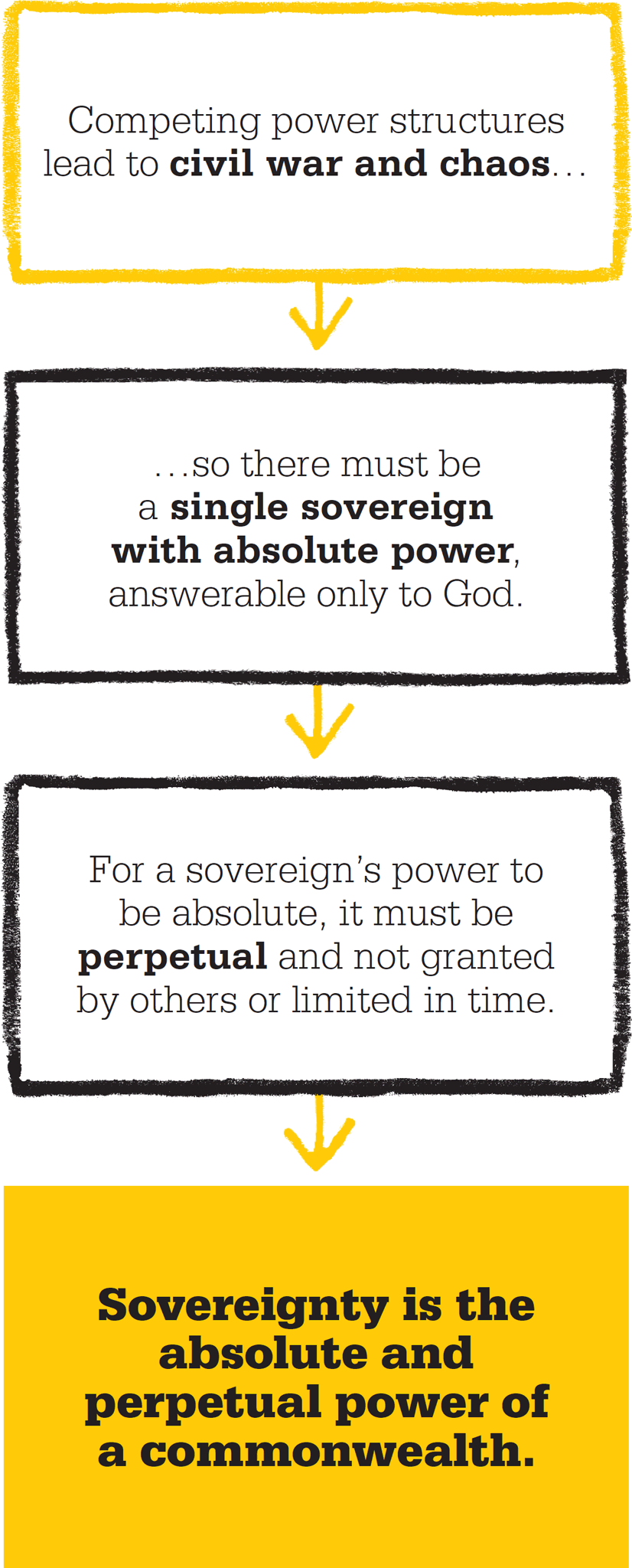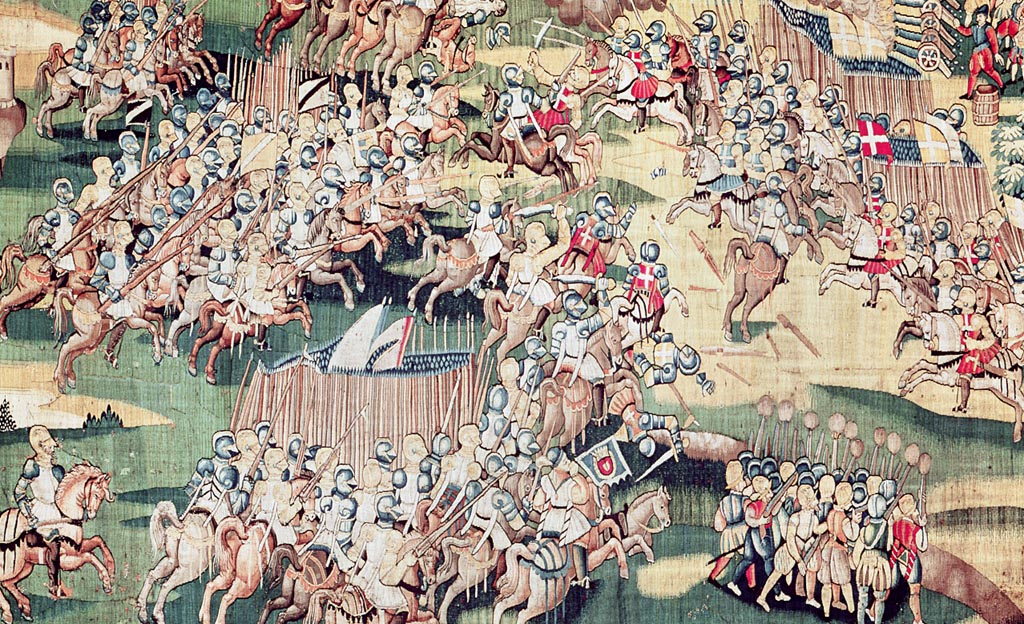
IN CONTEXT
Absolutism
Power of the sovereign
380 BCE In the Republic, Plato argues that the ideal state would be ruled by a philosopher king.
1532 CE Niccolò Machiavelli’s The Prince is published, providing practical advice to sovereigns.
1648 The Peace of Westphalia creates the modern system of European nation-states.
1651 In Leviathan, Thomas Hobbes argues that rule by an absolute sovereign nonetheless involves a social contract with the people.
1922 Carl Schmitt insists that a sovereign ruler has the right to suspend law in exceptional circumstances, such as war.
The idea that states should be sovereign within their own territory owes much to the writing of French jurist Jean Bodin. After living through the French Wars of Religion (1562–98), a period of civil war fought primarily between Catholics and Huguenot Protestants, Bodin saw the dangers of the complex, overlapping power structures of his time. The Church, the nobility, and the monarch all competed for the allegiance of their subjects, and this struggle often resulted in civil war and disorder. The German theologian Martin Luther—and later thinkers such as English philosopher John Locke and American Founding Father Thomas Jefferson—argued for a separation of Church and state to avoid such conflict. To Bodin, however, a strong central sovereignty was the key to ensuring peace and prosperity.

In his treatise Six Books of the Republic, Bodin argued that sovereignty had to be absolute and perpetual to be effective. Absolute sovereignty would create a stronger central authority over its territory. To avoid conflict, the sovereign should not be bound by laws, obligations, or conditions, either from outside factions or from his own subjects. Bodin’s insistence on the need for absolute sovereignty formed an intellectual pillar supporting the rise of absolute monarchy in Europe. He also argued that sovereignty needed to be perpetual. Power could neither be granted to the sovereign by others nor be limited in time, as this would contradict the principle of absolutism. Bodin used the Latin term res publica (“république” in French, or “commonwealth” in English) for matters of public law, and believed that any political society must have a sovereign who is free to make and break the law for the commonwealth to prosper.
The divine right of kings
For Bodin, the source of legitimacy for the sovereign was rooted in natural law and the divine right of kings—society’s moral code and a monarch’s right to rule both came directly from God. In this, Bodin was opposed to the concept that a sovereign’s legitimacy arises from a social contract between ruler and subjects, an idea later developed by Enlightenment thinkers such as French philosopher Jean-Jacques Rousseau. Although Bodin disliked democracy as a form of popular government, he did not agree with the Machiavellian position that a sovereign could act and rule unconditionally. Rulers needed to have absolute power, but they in turn were accountable to God and natural law.
"The sovereign Prince is accountable only to God."
Jean Bodin
The Peace of Westphalia, a series of treaties agreed between European powers in 1648, was based on Bodin’s views on the primacy of sovereignty in each territory, and moved Europe from its medieval political system of a local hierarchy to the modern state system. The Westphalian system has been the organizing framework for international relations ever since, based on the principles of sovereign territories’ political self-determination, mutual recognition, and non-interference in the domestic affairs of other states.

In the French Wars of Religion, Catholic forces saw the pope as the ultimate power, while Protestants backed the authority of the king.
JEAN BODIN
The son of a wealthy tailor, Jean Bodin was born near Angers in northwest France in 1529. He joined the Carmelite religious order when still very young, and traveled to Paris in 1545 to study under the philosopher Guillaume Prévost. He then studied law in Toulouse, returning to Paris in 1560, where he was made a counsel to the king, and later became the king’s prosecutor.
Bodin wrote on a wide range of subjects, including history, economics, natural history, law, witchcraft, and religion. His works were influential in his lifetime and long after his death, but his religious views were far from orthodox and much debated. Although Bodin was a Catholic, he questioned the authority of the pope and, in later years, attempted to start a constructive dialogue with other faiths.
Key work
1576 Six Books of the Republic
See also: Plato • Thomas Aquinas • Niccolò Machiavelli • Thomas Hobbes • John Locke • Carl Schmitt
